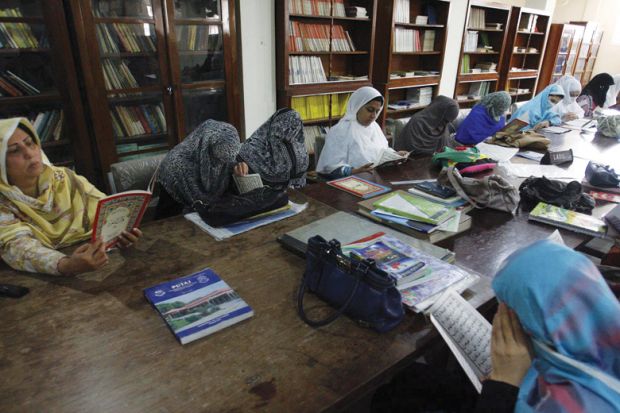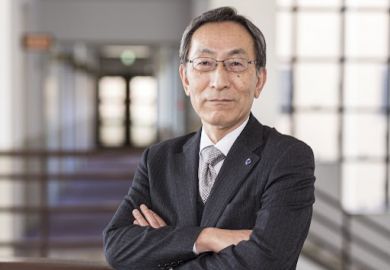The death threat to David Gosling came in photocopies left around campus by an unknown figure from outside the college.
Not an everyday experience, but then Dr Gosling was principal of a college in Peshawar, Pakistan, which has been described as one of the world’s most dangerous cities owing to terror attacks by the Pakistani Taliban. The city is only about 30 miles from Charsadda, the site of last week’s deadly assault by militants on Bacha Khan University that killed at least 21 people.
Dr Gosling, a nuclear physicist by background who has held positions at the universities of Cambridge, Delhi and Hull, last month published a book on his experiences at Edwardes College between 2006 and 2010, titled Frontier of Fear: Confronting the Taliban on Pakistan’s Border.
The college, established by the Church Missionary Society in 1900, is a prestigious private higher education institution that is strong in the sciences and was “the first in [its] province to introduce co-education”, as described by Dr Gosling.
“You’ve got to remember that 5 million children in Pakistan are out of school, 3 million of them girls,” Dr Gosling told Times Higher Education.
Part of the role for institutions such as Edwardes must be to educate the future teachers of those children, “otherwise you can’t talk about higher education without appearing somewhat uncoordinated with the rest of society”, he added.
Dr Gosling argued that institutions with a degree of autonomy can offer “a more rounded education. I could prioritise in women’s education, I could set up a programme on prison visiting, without having government officials looking over my shoulder.”
The death threat, in November 2007, claimed several grievances against Edwardes, including that “Islam is totally against female education, because it is against the sharia”.
Dr Gosling also encountered an inspector from Pakistan’s Inter-Services Intelligence (ISI), part of whose job “was to ‘spy’ on me and submit reports about my activities”, writes Dr Gosling.
But the inspector was rather friendly. After noticing that Dr Gosling always took the same route on his evening walk, he advised him to vary it to reduce the risk of being kidnapped. On another occasion, he gave Dr Gosling a lift back to college on his scooter.
Although the book describes vividly how violence afflicted Peshawar – to the extent that blasts from nearby suicide bomb attacks sometimes shattered windows on campus – Dr Gosling told THE that it was “important for outsiders to understand that the kind of Islam that fuels violence is imported to Pakistan from the Wahhabi tradition of Saudi Arabia”.
“It was imported for political reasons, basically to counter the Russians [after the Soviet invasion of neighbouring Afghanistan in 1979].”
But the “local, regional Islam was and is very Sufi-inspired, very compassionate”, he added.
Writing in a blog for THE last week, he said that the Bacha Khan attack proved that “there will be no lull in the spate of violence” that had afflicted education institutions in the region, culminating in the killing of 140 people, most of them children, last year at the Army Public School in Peshawar. “It also raises fears that institutions like Edwardes…will be attacked.
“Increasingly, the focus of Taliban terrorist attacks on soft educational targets appears to be based on revenge for military action against extremism,” he added.
后记
Print headline: Violence and hope: ex-college head on Pakistan’s educational future




